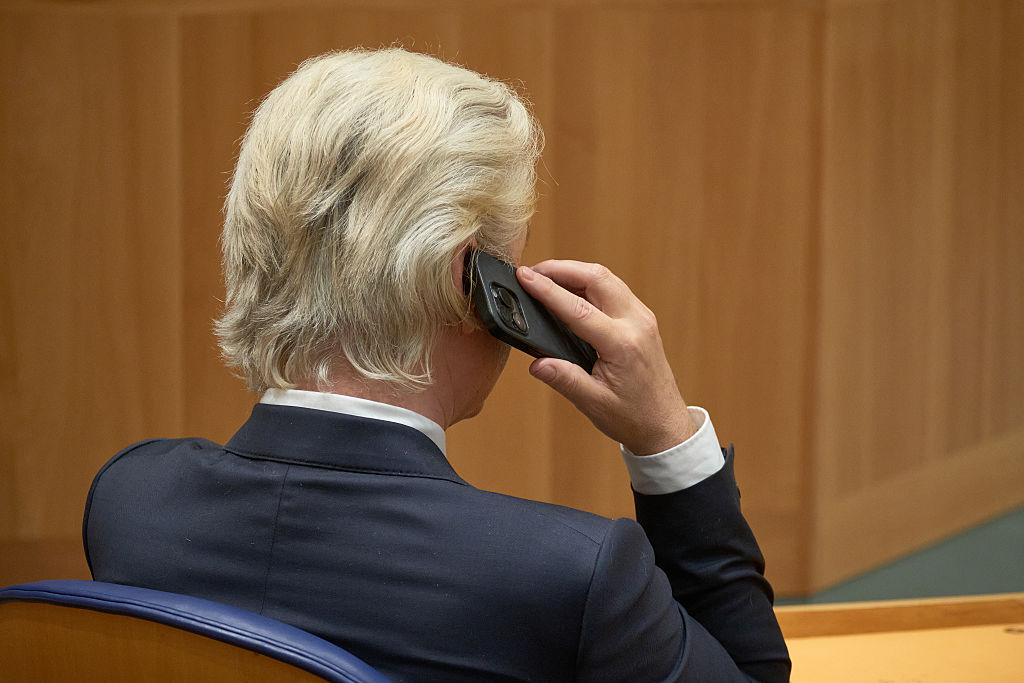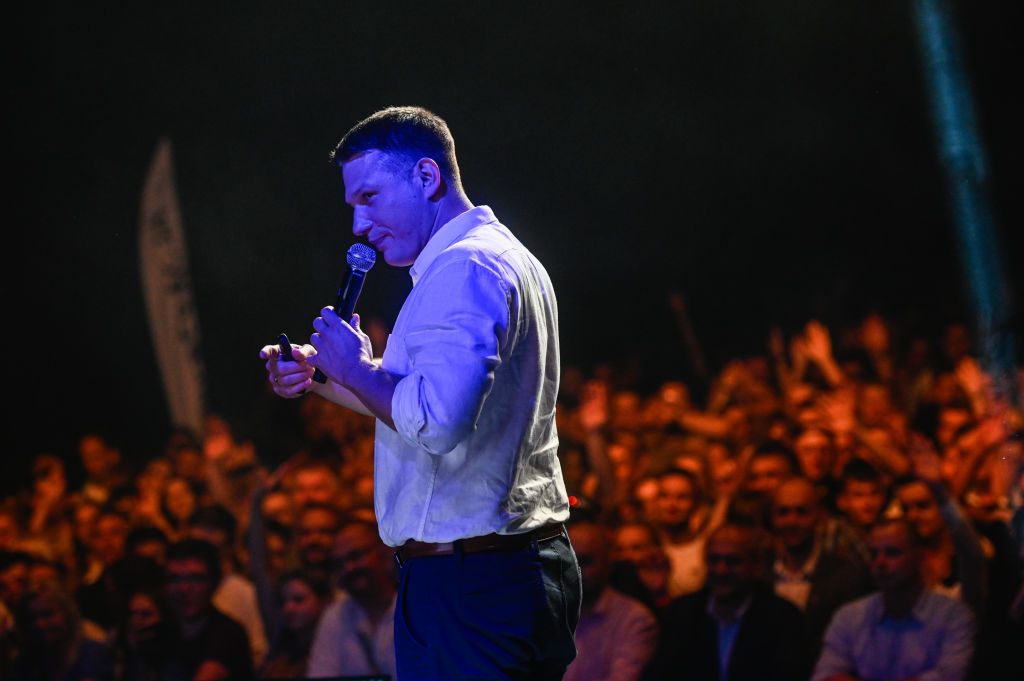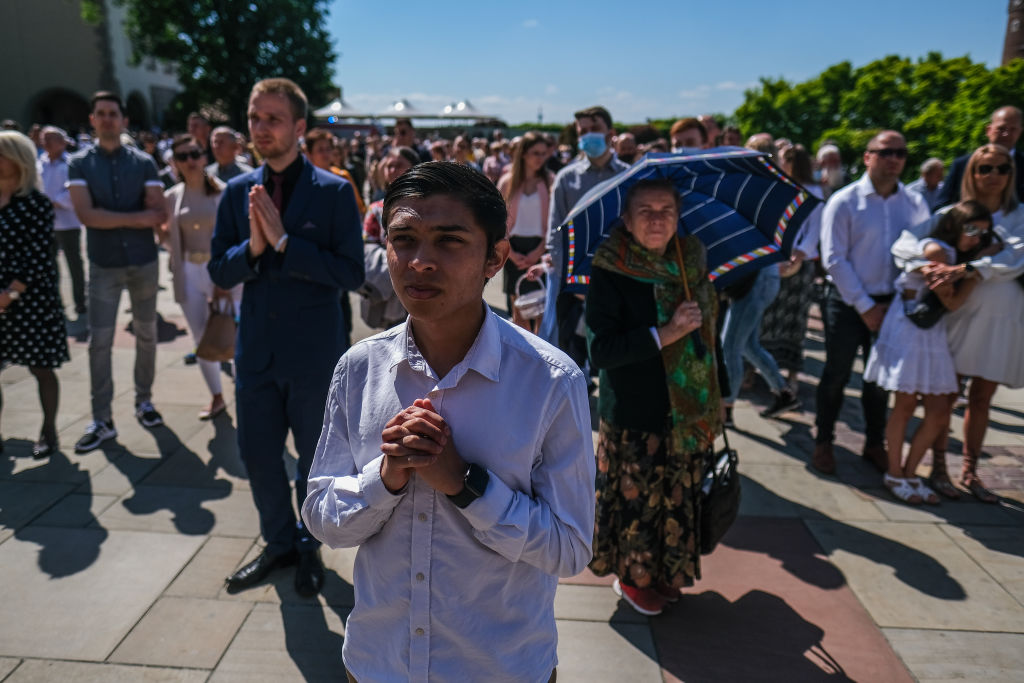President Donald Trump’s aggressively pro-Ukraine announcement Monday would have come as a massive shock to most European elites had they been told a few months ago that he would eventually do this. That fact shows they still, nearly a decade after his entry into the White House, do not understand the man they love to deride.
Most politicians have some background philosophy or ideology that governs their behaviour. Yes, they manoeuvre for advantage and power, but they do so within certain clear frameworks and boundaries.
A Christian Democrat is very unlikely, for example, to suddenly decide to attack business, while a Social Democrat will almost certainly not address a budget crisis by cutting social spending and avoiding any tax hikes.
Trump is different. His default worldview is unbounded by a consistent philosophy or ideology. Instead, his well-known transactionalism is in fact his world view.
For Trump, everything is a deal. He knows what he wants from any deal but is utterly flexible about the means he undertakes to obtain it. He is also unfettered by ancillary provisions in such an arrangement so long as they do not impede his achieving his bottom line.
Thus, when he says mean or nice things about someone or something, it is entirely a tactic meant to advance a deal related to the pronouncement. It means nothing at all about what he actually thinks about the person of object commented upon.
Trump’s soft-pedalling of Putin’s misbehaviours is a prime example of this. For most politicians, the type of rhetoric Trump has used for years to describe the Muscovite strongman would be associated with a genuine attitude of respect or support.
That is what virtually all European elites said when describing his apparently inexplicable refusal to see Putin’s true nature. Since Trump cannot say what everyone else recognises, they reasoned, he must actually back the tyrant and share at least some of his international aims.
But that was always a misreading of Trump.
Trump’s flattery and willingness to break with prior US-European consensus regarding Russia was simply a tactic all along. He believed that Putin could be lured back into a more fruitful relation with the West if he were given honey rather than vinegar, and thus Trump bent over backward to slather the sweet stuff on everything.
Trump is not naïve, however. Continuing that policy only made sense if Putin would reciprocate in kind.
In Trump’s view, that meant Putin would move on concrete terms toward a deal to end the Ukrainian war along the rough terms Trump was always signalling.
That signalling is another constant feature of Trump’s dealmaking. He always indicates what his bottom line is, what he wants most out of a deal.
In this trade talks, it’s clear he wants to reduce the trade surpluses many countries run with the United States and increase American exports. In global defence talks, it’s clear he wants the allies to rapidly rearm so as to better share the collective burden with America.
With respect to Ukraine, it was clear he wanted two things beyond peace: Recognition of Russia’s gains thus far since the initial 2014 invasion and clear guarantees that what remained of Ukraine would be free of fear from subsequent attacks.
Putin could have gained a lot had he been willing to deal. Trump wants Russia integrated with the Western world, and that means readmission to the G-20, withdrawal of sanctions, and more.
It also meant complete forgiveness of the brutal behaviour Russia has engaged in during the war. There would be no war crimes trials, no fear of further expropriation of Russian assets, and no humiliation of Putin or the country.
Many elites would have resisted such terms, believing that they would be unjust and unjustifiable. But for Trump they would simply be the ancillary parts of a deal that gave him his bottom line.
Trump came to see, however, that Putin does not want peace even when offered all those concrete materials benefits. Putin wants a supine Ukraine, one either fully reincorporated into a greater Russia or as fully under its thumb as is hapless Belarus.
That Trump could not support. And so, Trump has predictably shifted his tone and his behaviour.
This again should not be a surprise. It’s what he did with North Korean dictator Kim Jong Un in his first term when it became clear that Kim wanted the material advantages of trade but would never denuclearise his hermit nation.
Trump shifted from flattery bordering on the obsequious to a refusal to continue discussions overnight.
Some might take that personally, but for Trump it’s just business. If Kim or Putin were to change course and give Trump what he wants, the hard words would shift 180 degrees again as if they had never been uttered.
Europeans who want to reach arrangements with Trump need to understand these patterns apply to them, too. He’ll ignore NATO one day and imply that Article V is worthless, and happily meet with Secretary General Mark Rutte the next when the alliance is willing to play ball.
Prospective Trump whisperers like Italy Giorgia Meloni and Hungary’s Viktor Orbán should take note, as this will apply to them, too. They can get things they want from him, but only if they give Trump the things he wants from them.
Trump seems to really like Meloni, but if she tells him Italy cannot fulfil their NATO spending commitments, she’ll be shocked how quickly he’ll find a rude nickname to attach to her name in a vicious Truth Social post.
Europeans of all political stripes should take note of what has just transpired. They are guide to how Trump behaves generally. The sooner they absorb those lessons, the sooner they can build real understandings with a country they still desperately need in their corner.





Defeated Simion may be back if new coalition fails to grasp gargantuan deficit